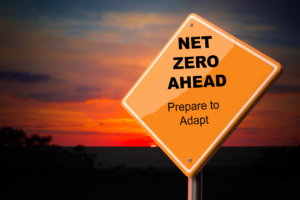In the first post of this two-part series, I cited a number of sources who tried to explain the characteristics of the individuals who make up Generation Y (Gen Y) and who are commonly referred to as Millennials. I thought it was pretty evident from the information provided that Millennials form a diverse group that continues to change with the times. At the end of the post, I indicated that I would provide some marketing tips provided by analysts who have been studying Millennials. Since Millennials are moving targets, I wouldn’t assume that what the experts have to say represents the last word when it comes to mounting an effective marketing campaign for Millennials. In the first post, I pointed out that Millennials are a particularly valued group because they make up the largest generational segment of the U.S. market (14%) and will outspend the Baby Boom generation beginning next year.
Trying to stereotype an entire generation is an impossible task. Although members of a generation grow up during the same time period and share a general world history, their individual experiences make each one of them unique. At the same time the Boston Consulting Group calls U.S. Millennials a generation that displays “levels of egocentrism that exceed what may be expected considering their youth.” Pew Research claims, “Millennials have already distinguished themselves as a generation that gets along well with others, especially their elders.” These kinds of ironic descriptions of Millennials are what make it so difficult to market to them. If you watched the 2014 Superbowl, you probably saw Coca Cola’s “America the Beautiful” ad. It was clear from the responses to that ad that it was targeted at Millennials not at what Brian Halligan calls “OWGs (Old White Guys–that’s what [Millennials] call us).” [“How Millennials Think, and What To Do About It,” Inc., 3 July 2013] Ethan Sacks reports, “Coca Cola’s Super Bowl commercial featuring a multilingual rendition of ‘America the Beautiful’ was refreshing to many — but left a bitter taste in the mouth of conservative pundits.” [“Coca Cola’s ‘America the Beautiful’ Super Bowl commercial angers conservative pundits,” New York Daily News, 3 February 2014] Coca Cola was willing to risk the ire of OWGs because it knows that Millennials are more tolerant than past generations.
Krystine Dinh notes that Millennials have been stereotyped as “lazy and self-absorbed, often found taking selfies, telling the world every detail of what they’re doing and feeling, hyper-aware of Facebook ‘likes’, and piling up hashtags in tweets. In short, they’re obsessed. With themselves.” [“Marketing to self-absorbed selfie takers, hashtag obsessors – the Millennial generation,” exponential advertising, 30 September 2013] Despite the belief that these characteristics “have been detailed, chronicled, and parsed for accuracy across many media platforms,” Dinh writes, “As marketers, we need to look beyond popular convention. And for this group, that is no easy task. While brands and advertisers are racing to market to this particular generation, we have yet to truly look at the facts.” As noted in my previous post, however, the “facts” are all over the place. Nevertheless, Heather Grossmuller agrees with Dinh. “Some question the potential of targeting this constantly evolving group,” she writes, “however, through effective research and innovation, the right agency partners, and a strong knowledge of marketplace trends and the latest technologies, marketing to millennials can be a success. [“The Truth About Marketing to Millennials,” The Strategic Sourceror, 4 December 2013] Here are some suggestions about how to market to Millennials.
Focus on Mobile Technologies
“Millennials have been repeatedly labeled “digital natives.” Dinh notes, “Millennials experienced a dramatic increase in home PC ownership, widespread adoption of mobile phones, and the rise of the Internet and social media in their relatively short lives.” She states that simply knowing that Millennials use technology isn’t enough. “As marketers,” she writes, “we need to dig deeper and know precisely which devices and programs would ensure reach of the Millennial consumer.” Lohith Ramachandra adds, “This is a group that either consciously or subconsciously rejects much of traditional advertising and has fully embraced social media as a means of receiving any data they require from news, weather and sports to fashion and product reviews. Millennials spend a huge amount of their lives online: on smart phones (59%), on tablets (35%) and on their laptops (70%). As of 2011, 91% of millennials are regular internet users, according to Forrester Research.” [“Millennials have changed the game of marketing today. Brands – Have you changed yours?” 90 Day Entrepreneur, 5 November 2013] John Bonini adds, “If you’re used to direct mail, I think you’ll find the easiest transition into more Millennial-friendly turf in email marketing. It’ll help promote new products or services in a similar way to direct mail — one piece of content for one person — but allows you to personalize your messaging more easily, and more efficiently, than personalized print marketing. These efficiencies will enable you to reallocate budget to other aspects of your marketing strategy.” [“Your Traditional Marketing Tactics Don’t Work on Millennials: Here’s How to Adjust,” Inbound Marketing, 17 July 2013]
Be Clever but Be Informative
“Millennials come equipped with a fairly accurate BS radar,” writes Bonini, “meaning it’s critical that you adjust your tone in order to engage them more effectively — no matter what marketing channel. They’re adverse to sales pitches. Rather than being sold to, they prefer doing the research on their own in order to make decisions. They value conversation. Think walkie-talkie over megaphone. The need for engaging and resourceful content has never been greater thanks to the buying behavior of Millennials and their thirst for information.” Ryan Donegan, who is a Millennial, agrees with Bonini. He writes, “Don’t insult our intelligence. … We’re quite possibly the most informed consumer generation ever to face marketing professionals. You can bet that, before we’ve made any major purchase, we will have researched it, asked our friends about it on social channels, and searched your reviews online.” [“5 Tips for Marketing to Millennials From a Millennial,” Huffington Post The Blog, 7 October 2014] Daren Sorenson, Director of Retail and Shopper Insights for the Coca-Cola Company’s North America Group, told Megan Conniff, “Millennials are the most highly educated and social generation in history. They are clever and know what they want. As a brand, you need to be authentic and transparent when communicating with this younger generation.” [“Millennials and the new value of shopper marketing,” SmartBlog on Leadership, 12 November 2013]
Engage and Interact with Them
Christine Barton, Lara Koslow, and Christine Beauchamp advise, “Executives and marketers must embrace the new reality: marketing is an ecosystem of multidirectional engagement rather than a process that is controlled and pushed by the company.” [“How Millennials Are Changing the Face of Marketing Forever,” bcg.perspectives, 15 January 2014] More than that, they insist that companies must “master the art of two-way reciprocal marketing.” They claim that reciprocal marketing is founded in “the reciprocity principle.” They say that there are “five key elements of this principle: reach, relevance, reputation, relation, and referral.” They continue:
“Like any other ecosystem, the new marketing environment is dynamic, and its boundaries are fluid. Millennials are influencing each of these elements in profound ways.
- Reach. Millennials are digital natives. They are more technologically savvy than other generations, and they use portable devices more extensively to access the Internet while physically visiting stores. Companies must use the full array of available media, as well as mobile devices, to reach these consumers and build brand awareness as cost-effectively as possible. In addition to using traditional marketing vehicles that are trusted by Millennials, such as public relations and endorsements, companies should increase their investments and capabilities in digital marketing, social media, advocacy, and cause marketing.
- Relevance. Millennials, whose values differ from those of older generations, are distributed among a wide range of life’s stages: while some have started families, for example, others still live with their parents. Yet others are first-time independents. Their brand choices, moreover, are influenced by more and different kinds of people. Companies must be aware of all this to make their brands relevant and appealing.
- Reputation. Because Millennials identify more personally and emotionally with brands, it is especially important that brands strive to maintain genuine reputations that reinforce the traits, personalities, values, and causes that Millennials hope that they project about themselves.
- Relation. Companies must maintain a two-way dialogue with Millennial consumers. They must listen to them, incorporate their feedback and input, and quickly respond to them and their concerns in a personal and straightforward manner.
- Referral. To build brand loyalty and persuade Millennials to be positive advocates of their brands, companies must build an ongoing relationship through individual and online community communications, social media, and advocacy programs.
… To sustain Millennial loyalty to their brands, companies must engage Millennials individually and in small groups through direct, two-way communications.”
Appeal to Their Better Self
Many of the studies about Millennials have concluded that they are motivated by worthy causes. For example, Halligan writes, “If your mission this year is to improve earnings by 5% by either gouging your customers or gouging the planet, that’s just not going to get it done with the Millennials. Think again.” Dinh adds, “Millennials are the first to see themselves as global citizens, and according to Hewlett et al. (2009), their values are linked with ambition, loyalty, ‘multicultural ease’ and environmental awareness.” Barton, Koslow, and Beauchamp indicate that marketers can take advantage of this trait. They believe that Millennials like to buy things that demonstrate how they think about the world. They call it having “status currency.” They write:
“One way a company can connect with this new status currency is by convincing Millennials that they are “doing good” when they purchase its brands. Companies need to demonstrate through their values, heritage, and meaningful actions that they help those in need, are socially responsible, are good environmental stewards, protect personal data, or are transparent and sincere.”
Dinh concludes, “Numerous top global brands have taken note of these characteristics, enthusiastically promoting social, environmental or even political causes. Exponential data implies that most advertisers and marketers should expect this ‘do-good’ trend to increase when striving to reach millennials.”
I think Krystine Dinh may have written the best summation about marketing to Millennials. She stated, “We’ve been given a tech savvy generation completely open to digital absorption; a generation that personally relates their social identity to brands, providing advertisers with plenty of avenues with which to reach them. We should be seeing more socially-conscious, immersive, emotional brand experiences that capture the mind of the Millennial — executed through the devices across the screens they spend the most time on. That’s because the most effective marketing campaigns for Millennials starts with the right data, executes with the right technology, and succeeds with the right media. And if you don’t get that right, expect them to call you out on Twitter.”




